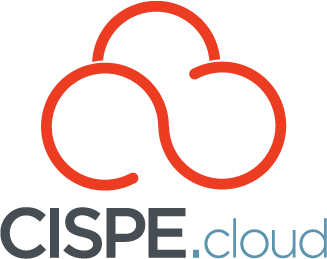On Thursday 17th, CISPE hosted its first event on the draft Digital Markets Act (DMA) published on 15th December, Eva Kaili, Member of the European Parliament, Chair of the Centre for Artificial Intelligence (C4AI) and STOA, Maria Manuel Leitão Marques, Member of the European Parliament and Vice–Chair of the Committee on the Internal Market and Consumer Protection, Alban Schmutz, Chair of the Cloud Infrastructure Services Providers in Europe (CISPE) and Vice President Strategic Development and Public Affairs, OVHCloud, and Laurent Godfroid, Competition Law expert and Partner, Gide Loyrette Nouel took part in a debate moderated by CISPE Secretary General, Francisco Mingorance.
This was the first public event on the freshly published DMA and it quickly established the importance of the act, not only for Europe but globally. Laurent Godfroid, speaking from his experience as competition lawyer, underlined just how revolutionary the act was. By identifying ‘gatekeepers’, the definition of which he felt would include legacy software players, and creating ex ante obligations, the act will provide a much faster and more effective route to creating and preserving a fair and competitive cloud market. As such this ground-breaking legislative proposal will not only shape the digital sector in Europe for years to come but establish the benchmark for the rest of the world.
All the panelists welcomed the draft regulation and saluted the European ambition to put balanced and flexible rules to the digital world. For the nascent cloud sector in particular, the proposed DMA is an historic opportunity to address and prevent the long-standing unfair practices of some dominant software providers.
MEP Kaili added that the intention of the Act was to be proactive in ensuring that the Internet had rules for fair competition. Clear definitions and rules that prevented the anti-competitive actions of those with dominant positions are essential to create the level playing field that everyone wants. MEP Marques added that for all the benefits provided by the internet there was a dark side, and that this regulation was designed to tackle that dark side. The ex-ante approach was crucial to ensure that remedies were fast.
Alban Schmutz reiterated that currently competition cases are extremely slow and can take up to 15 years for a resolution – in the digital sector that is unacceptable. You can kill off competition in a fraction of that time. The importance of the DMA is its aim to identify and ban commercial and technical practices that prevent fair competition, before they occur, ex-ante.
This is essential for cloud infrastructure services providers, and it must include as gatekeepers those that dominate the adjacent markets to the cloud. Some legacy software vendors have 80 or 90 percent market shares in certain software market segments across Europe, and they are using that to build dominance in cloud infrastructure. This gives them an unfair advantage against competitors.
The DMA’s definition of gatekeepers already suggests that some of these players and practices will be regulated. CISPE Members we please to note the specific prohibition of using identity management systems to restrict choice of cloud infrastructure services. However, it is essential that these definitions are robust and capture anti-competitive misbehaviour that threatens to distort the cloud market from outside as well as within. For example, currently it appears that the DMA fails to list unfair practices such as ‘bundled’ services, where a software provider offers free or discounted cloud infrastructure services when customer purchase other products (including those in which they may have been acquiring a dominant position)– discouraging its business customer from choosing alternative cloud infrastructure solutions. CISPE is ready to work with Members of the European Parliament and the Council in order to ensure that all these anti-competitive practices are captured by the final text of the DMA.
As MEP Marques pointed out, the DMA has the potential to impact the sector well-beyond the European borders. Other countries are looking at what is being done in Europe to address the existing issues in the digital sector. And for many members of CISPE, this is crucial too. With the DMA, the European Union has the potential to lead by example and promote a dynamic and innovative cloud sector globally.
CISPE looks forward to other discussions in 2021 and will continue to engage with institutional and political actors to ensure that customers in Europe have access to innovative, reliable and affordable cloud services, the backbone of Europe’s digital transformation.
